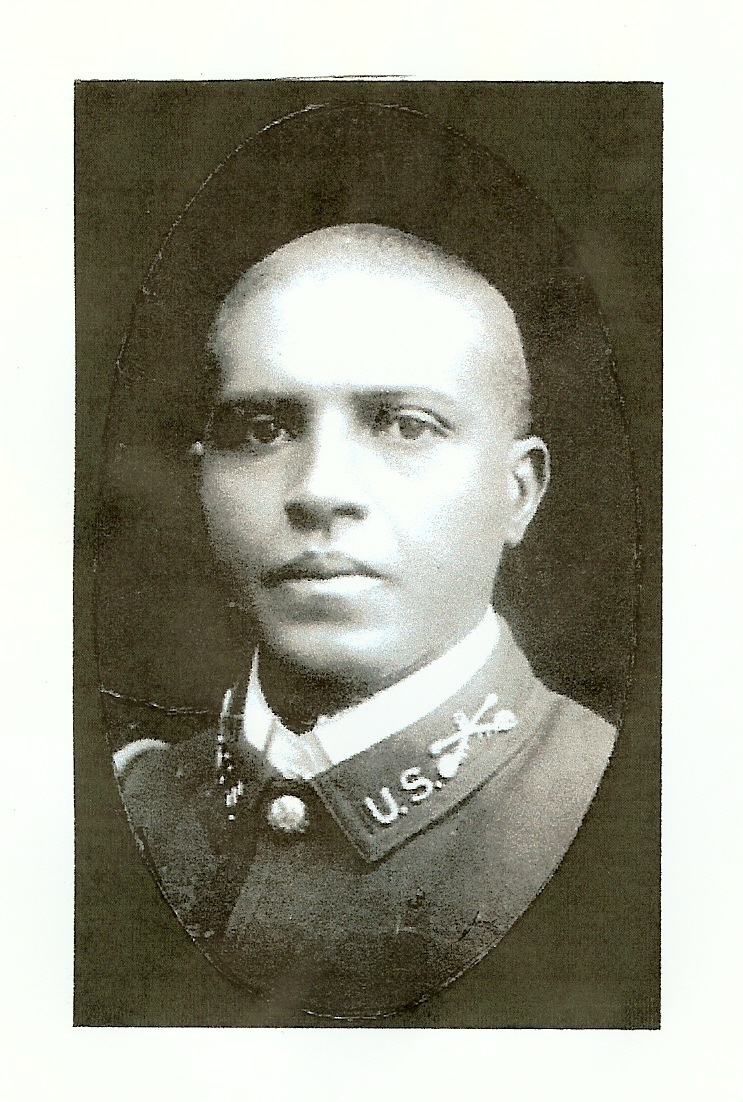
|
C harles Young's home became a safe haven for family and friends, away from the overt racism and violence of the Deep South and away from the prejudice he often endured - in silence - in the Army. In his home, he could relax and enjoy the family that he so loved while he worked in peace. Within the two etchings that follow, I have reproduced, from my personal photo collection of Young's family photos, an album that shows African American's at the-turn-of-century as the productive, hardworking, dignified citizens that the majority of them were...photos that are not often seen in today's American history books and especially not often seen in the mainstream media.
When speaking of Young, his friend Major Scott said, " He (Young) made friends readily and held them. He had friends among all sorts and conditions of people; he spoke many languages and was sought by many kinds of folks because they felt that somehow he understood. "
Young also had a passion for the arts, especially music. He played the piano, violin, cornet and ukulele. His mother, who was a self-taught pianist and composer, gave him his first piano lessons, and as a youngster, Young played the piano for the A.M.E. church in his hometown of Ripley. As an adult, some of Young's musical compositions were:
"Beatitudes," 8 pieces; Officertory (Re-Setting of Old Hymns) 5; Serenades, 8; and a song "There's a Service Flag in the Window" that he dedicated to all the brave Yankee men who served in World War I. In addition, Young often enjoyed performing for his family, friends, students, and even his troops.
Charles Young also wrote a number of poems entitled "Long Wings" that he shared with his very good friend, the renowned African American poet Paul Lawrence Dunbar.
Another of his notable but not as well known friends was John Parker, an African American abolitionist from Ripley, Ohio. Parker, who was a freedman in the 1800's, a slave who had bought his own freedom. When Young was a student in Ripley, John Parker mentored him. Parker who had become a wealthy black businessman as owner of his own foundry and blacksmith's shop, became a role model for Young as a person who was removing the stereotypes that depict black people as being inferior, especially those who had been enslaved.
In his book, Military Morale, Young wrote passionately concerning his feelings for the importance of family and country, saying, "...so long as the children of a country are well trained in useful labors and well instructed in civic and moral duties, being exhorted to obedience to their parents and teachers; so long as the parents themselves set the example in the family of right-living and are obedient to the laws of the land; so long as the State compels respect for law and order and sees that equal justice is meted out of all men and that the laws are made in obedience to the higher laws of God---so long will that country prosper and have hundreds of thousands of strong arms and stronger hearts for its defense and the perpetuation of its peace and prosperity."
| |
-------- Copyright © 2007 by Joann Helene Sanneh All Rights Reserved --------------------------------------------------------------------------------------------------------------------------------------------------------------------------------------------------------------
--------------------------------------------------------------------------------------------------------------------------------------------------------------------------------------------------------------![]()
